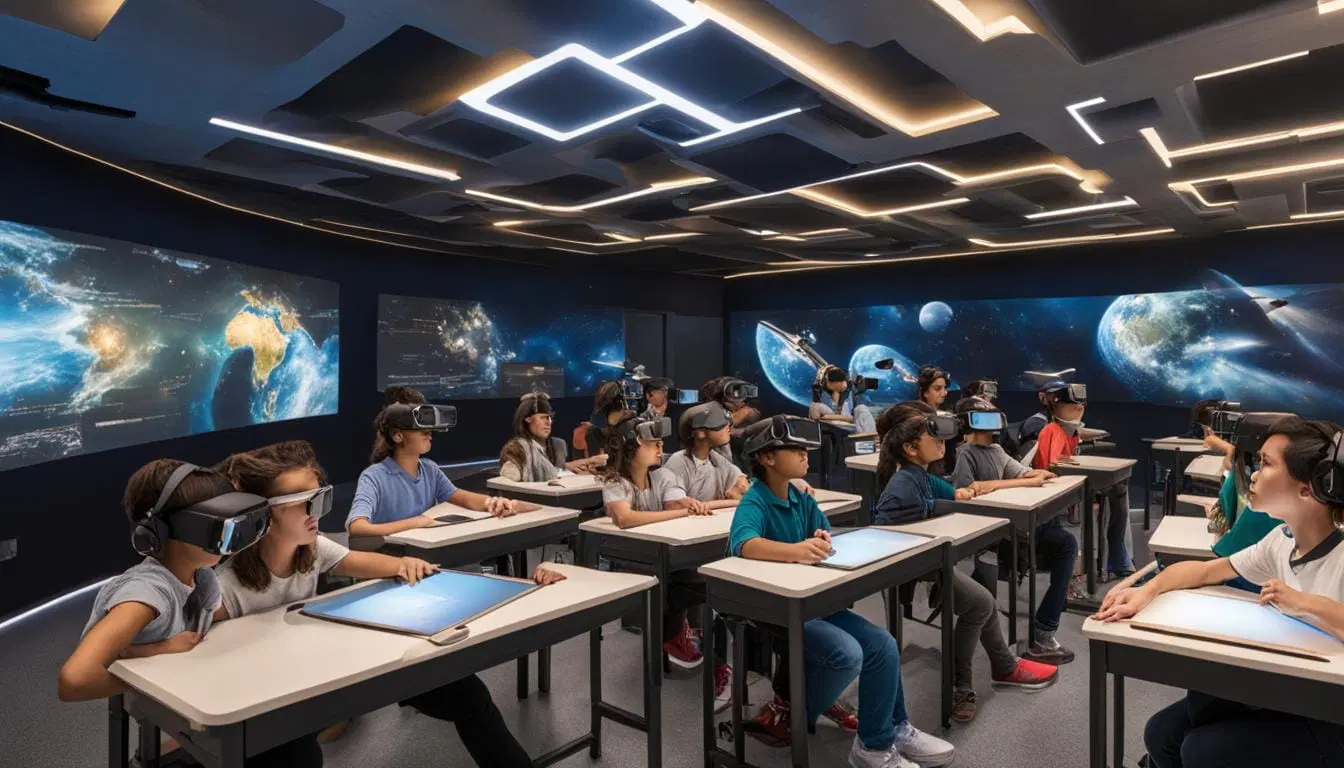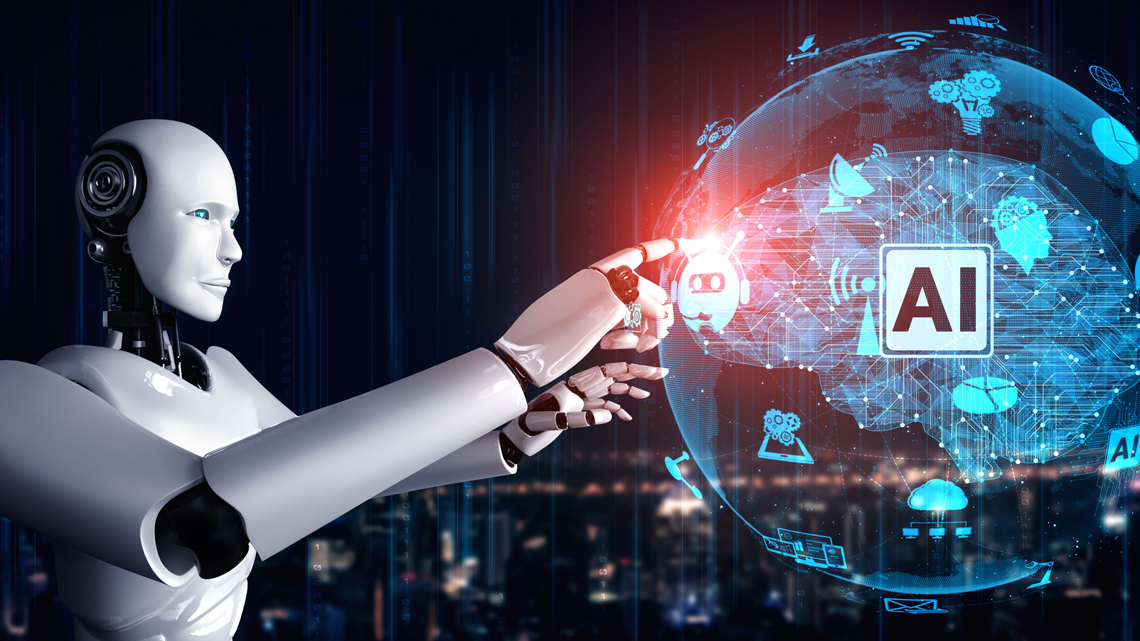Artificial Intelligence (AI) is transforming numerous industries, and healthcare is one of the most profound beneficiaries. From enhancing diagnostic accuracy to personalizing treatment plans, AI is helping medical professionals deliver more effective and timely care. In this article, we’ll explore the key ways AI is revolutionizing diagnostics and personalized treatment, providing a glimpse into the future of healthcare.
Outline:
- H1: Introduction to AI in Healthcare
- H2: The Growing Role of AI in Medicine
- H2: Why AI is Crucial for Modern Healthcare
- H1: Revolutionizing Diagnostics with AI
- H2: AI in Medical Imaging: A New Era of Accuracy
- H3: AI-Powered Image Analysis for Cancer Detection
- H3: Identifying Neurological Disorders with Machine Learning
- H2: AI for Early Detection of Diseases
- H3: Predicting Heart Disease with AI Models
- H3: AI for Diabetes and Chronic Condition Management
- H2: Natural Language Processing (NLP) in Healthcare Diagnostics
- H3: AI-Assisted Medical Record Analysis
- H3: Automating the Diagnosis Process with NLP
- H2: AI in Medical Imaging: A New Era of Accuracy
- H1: Personalized Treatment: Tailoring Care to Individuals
- H2: Precision Medicine and AI
- H3: AI in Genomics: Designing Customized Treatment Plans
- H3: Personalized Cancer Treatment Based on Genetic Data
- H2: AI in Drug Discovery: Faster, More Targeted Medications
- H3: How Machine Learning Speeds Up Drug Development
- H3: Reducing the Cost of Drug Discovery Through AI
- H2: AI for Monitoring and Predicting Patient Outcomes
- H3: Real-Time Health Monitoring with Wearable Devices
- H3: Predicting Patient Recovery and Treatment Response
- H2: Precision Medicine and AI
- H1: Ethical Considerations in AI-Driven Healthcare
- H2: Data Privacy and Security in AI Healthcare Systems
- H2: Addressing Bias and Fairness in AI Algorithms
- H1: Conclusion
- H1: FAQs
- H2: How does AI improve diagnostic accuracy in healthcare?
- H2: Can AI replace doctors in making medical decisions?
- H2: What role does AI play in personalized treatment?
- H2: Are there any risks associated with AI in healthcare?
- H2: How is AI contributing to the future of drug discovery?
Introduction to AI in Healthcare
The Growing Role of AI in Medicine
AI is no longer just a futuristic concept in healthcare; it is an active player in transforming how doctors diagnose diseases and treat patients. The integration of AI technologies like machine learning, natural language processing, and robotics in healthcare is driving unprecedented innovations. AI systems can analyze vast amounts of medical data faster and more accurately than human professionals, empowering medical staff to make more informed decisions.
Why AI is Crucial for Modern Healthcare
Healthcare systems worldwide are burdened by the growing demand for quality care, aging populations, and the increasing complexity of diseases. AI offers solutions by automating repetitive tasks, predicting diseases before they develop into serious conditions, and personalizing treatment plans. With AI, healthcare becomes more efficient, patient outcomes improve, and costs decrease.
Revolutionizing Diagnostics with AI
AI in Medical Imaging: A New Era of Accuracy
AI-Powered Image Analysis for Cancer Detection
Medical imaging is one of the most impactful applications of AI in healthcare. Machine learning algorithms can now analyze X-rays, MRIs, and CT scans with incredible precision. For instance, AI-powered systems can detect early signs of breast cancer, lung cancer, and other types of malignancies that may be missed by the human eye. This not only improves diagnostic accuracy but also helps in detecting diseases earlier, which is crucial for successful treatment.
Identifying Neurological Disorders with Machine Learning
AI is also making strides in diagnosing neurological disorders like Alzheimer’s and Parkinson’s. By analyzing brain scans, AI models can detect patterns and anomalies associated with these diseases long before symptoms appear. This can lead to earlier intervention and potentially slow down the progression of these conditions.
AI for Early Detection of Diseases
Predicting Heart Disease with AI Models
Heart disease is one of the leading causes of death worldwide, and AI is playing a critical role in predicting its onset. Machine learning algorithms analyze patient data such as blood pressure, cholesterol levels, and lifestyle habits to predict who is at risk of developing heart disease. This allows doctors to recommend preventive measures and tailor treatments to individuals’ needs.
AI for Diabetes and Chronic Condition Management
Managing chronic conditions like diabetes requires constant monitoring and data analysis, which can be cumbersome for both patients and doctors. AI-powered systems help by analyzing glucose levels, diet, and other factors in real time, allowing for more precise adjustments to treatment plans. This can lead to better disease management and improved patient quality of life.
Natural Language Processing (NLP) in Healthcare Diagnostics
AI-Assisted Medical Record Analysis
Natural Language Processing (NLP) is another area where AI is having a significant impact on healthcare. By analyzing vast amounts of unstructured medical records, NLP algorithms can extract valuable insights that aid in diagnosis. For example, NLP can scan patient history for symptoms or trends that might have gone unnoticed, helping doctors reach more accurate conclusions.
Automating the Diagnosis Process with NLP
NLP can also automate parts of the diagnosis process, such as flagging potential conditions based on patient-reported symptoms or test results. This helps reduce the workload on medical professionals and speeds up the diagnosis process.
Personalized Treatment: Tailoring Care to Individuals
Precision Medicine and AI
AI in Genomics: Designing Customized Treatment Plans
The concept of precision medicine is all about tailoring healthcare to the individual based on their genetic makeup, lifestyle, and environment. AI is making this approach possible by analyzing genomic data to predict how patients will respond to certain treatments. For example, AI can help oncologists design cancer treatment plans that target a patient’s specific genetic mutations, leading to more effective and personalized therapies.
Personalized Cancer Treatment Based on Genetic Data
In cancer treatment, AI’s ability to analyze genetic data and predict the best course of action is game-changing. Machine learning models can identify specific genetic mutations in tumors, helping oncologists choose treatments that will work best for that individual’s cancer type. This leads to more targeted therapies with fewer side effects.
AI in Drug Discovery: Faster, More Targeted Medications
How Machine Learning Speeds Up Drug Development
AI is also revolutionizing the pharmaceutical industry by accelerating drug discovery. Traditionally, developing a new drug can take years, if not decades. However, machine learning models can analyze vast chemical databases to predict which compounds are most likely to be effective in treating specific conditions. This dramatically reduces the time and cost of bringing new drugs to market.
Reducing the Cost of Drug Discovery Through AI
The use of AI in drug discovery also lowers research and development costs, making it more affordable for pharmaceutical companies to explore new treatments. This means that life-saving medications may reach patients faster than ever before.
AI for Monitoring and Predicting Patient Outcomes
Real-Time Health Monitoring with Wearable Devices
Wearable devices like smartwatches and fitness trackers are becoming increasingly important tools for healthcare monitoring, and AI plays a significant role here. These devices can track a wide range of health metrics such as heart rate, sleep patterns, and physical activity. AI analyzes this data in real time, allowing healthcare providers to monitor patients remotely and intervene when necessary.
Predicting Patient Recovery and Treatment Response
AI systems can predict how patients will respond to treatments based on their medical history, genetics, and other factors. This allows doctors to optimize treatment plans and anticipate potential complications, improving patient outcomes and speeding up recovery times.
Ethical Considerations in AI-Driven Healthcare
Data Privacy and Security in AI Healthcare Systems
One of the major concerns with AI in healthcare is the security and privacy of patient data. Since AI relies on large datasets, there’s always a risk of data breaches or misuse. Healthcare providers and AI developers must ensure that patient data is protected through robust encryption and secure systems.
Addressing Bias and Fairness in AI Algorithms
AI algorithms are only as good as the data they’re trained on, and if that data is biased, the results can be too. In healthcare, this could lead to unequal treatment for certain groups. Ensuring fairness and transparency in AI-driven healthcare systems is crucial to preventing discrimination and ensuring equal access to quality care.
Conclusion
AI is transforming healthcare in profound ways, particularly in diagnostics and personalized treatment. From improving the accuracy of medical imaging to creating tailored treatment plans, AI is helping doctors make faster, more informed decisions. However, with these advancements come ethical considerations, particularly around data privacy and bias in AI algorithms. As we continue to integrate AI into healthcare, it’s essential to focus on creating systems that are secure, fair, and ultimately beneficial for all patients.
FAQs
How does AI improve diagnostic accuracy in healthcare?
AI improves diagnostic accuracy by analyzing large datasets like medical images or patient records faster and more precisely than humans, helping to detect diseases earlier.
Can AI replace doctors in making medical decisions?
No, AI is designed to assist, not replace, doctors. It enhances decision-making by providing insights and recommendations but the final decision always rests with the medical professionals.
What role does AI play in personalized treatment?
AI helps create personalized treatment plans by analyzing genetic data, lifestyle factors, and patient history to predict how individuals will respond to certain treatments.
Are there any risks associated with AI in healthcare?
Yes, the primary risks involve data privacy, security, and the potential for bias in AI algorithms, which could affect the quality of care for certain populations.
How is AI contributing to the future of drug discovery?
AI accelerates drug discovery by predicting which compounds will be most effective, reducing the time and cost of developing new medications.












